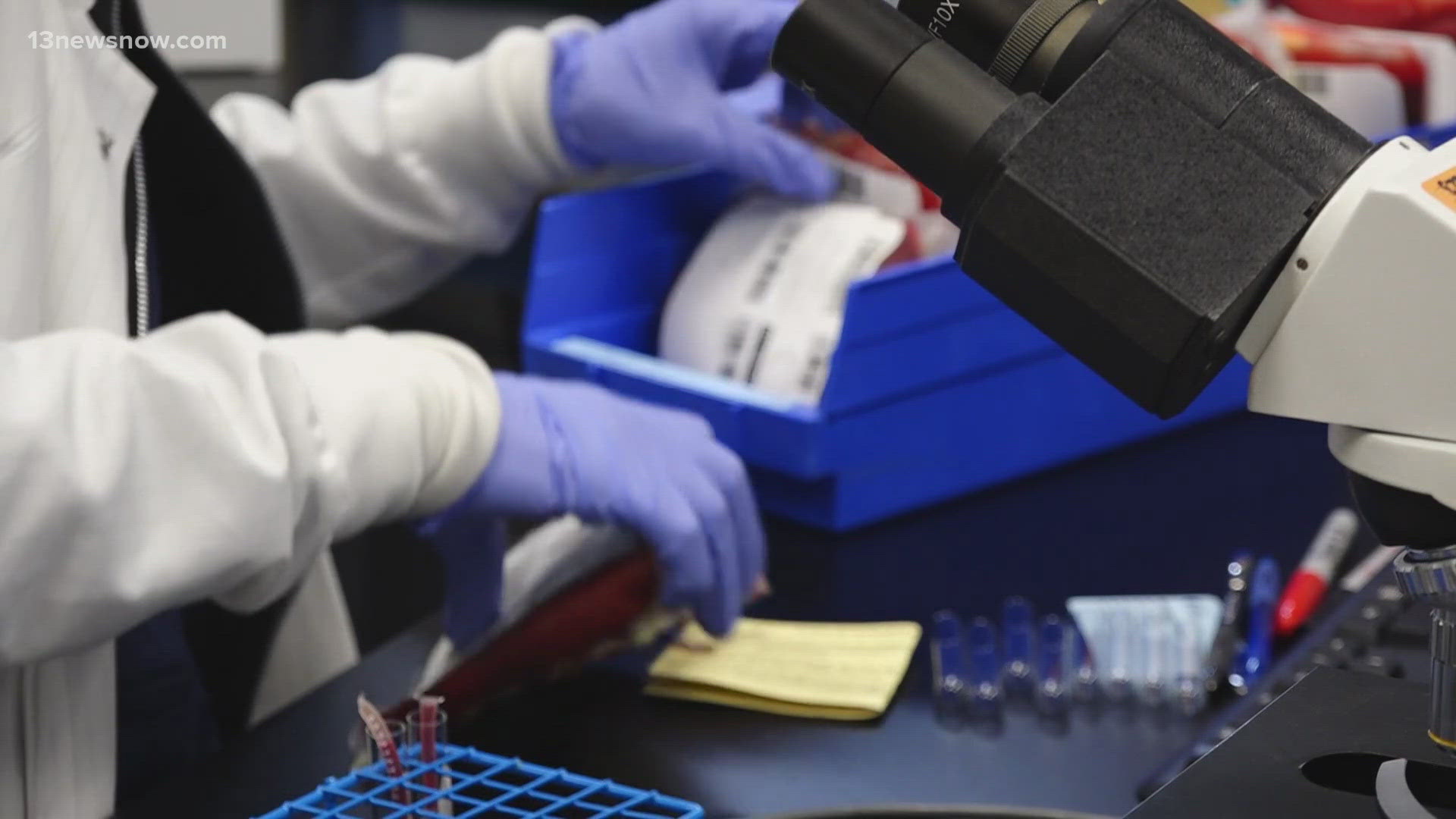NORFOLK, Va. — Medical advancements are making life easier for some people who live with sickle cell disease. It affects roughly 100,000 people in the U.S., according to the Centers for Disease Control (CDC).
Doctors say the inherited blood disorder affects the Black community at a higher rate, although it is also present in other ethnic groups.
"It causes major problems, not only with the blood, hence, the name anemia. But it also causes severe painful events intermittently. It causes strokes, it causes heart problems, lung problems, it affects the entire body," said Dr. William Owen with Children's Hospital of The King's Daughters (CHKD).
Dr. Owen serves as medical director of the comprehensive sickle cell program and academic medical director for the Cancer and Blood Disorders Center at CHKD.
The longtime physician said the medical field has long relied on bone marrow transplantation as "transformative therapy with curative intent."
However, in December, the FDA approved two types of gene therapies to treat patients, ages 12 and up, with sickle cell disease.
"This is huge," said Dr. Owen. "This is not a simple medication. This is a transplant and a type of transplant called autologous transplant, where you get your own cells back that have been modified in the laboratory."
The results, so far, impress him.
"What both studies showed were 86-94% improvement or resolution of painful events in the year to two years after receiving these therapies," said Dr. Owen.
CHKD is working to get hold of the means for gene therapy, to help patients locally. But, Dr. Owen knows of one in Hampton Roads who was part of a clinical trial.
"He had normalization of his blood counts, no painful events and back to a normal life," said Dr. Owen.
He also said scientists will have to keep studying other therapies and monitor whether negative health effects down the road form.
Other things to consider are access and cost.
"Estimates are $2.5 to $3 million per patient," said Dr. Owen. "But if you look at the life span of a person with sickle cell disease, the cost of taking care of them and the loss of productivity of their life, not to mention their life activities, is much more expensive."
"My one thing would just be trying to focus on lowering the costs because even though this is a great thing, you have to think about, 'How much is this going to cost out-of-pocket for patients who can't even afford simple medications," said Suffolk teenager Ayana Johnson.
Ayana is a nationally known advocate for awareness and resources. She is a sickle cell disease warrior herself and is also focused on getting the word out about donations.
"There are people who have sickle cell disease who need blood transfusions as many times as once a month," said Ayana. "So it's really important we take the time to donate blood, especially in communities of color."
"For sickle cell patients, the best donors are donors from their own race," said Beth Eades, who manages the American Red Cross Immunohematology Reference Lab in Norfolk.
Eades said the more donations there are on the shelves, the better.
"Some patients develop antibodies toward donor red cells. In that case, their blood has to be more specifically matched. So, that's what we do is find specific matches for the patients," Eades added. "[But,] the only way you know if you have that profile is to come in and donate, so that we can test you."
You can give blood at the Norfolk donation center near Downtown at 601 Woodis Avenue. An appointment is encouraged. If you schedule one, Eades also suggests you bring someone along with you who can also donate.
Furthermore, Dr. Owen also recommends people enter the national bone marrow transplant registry.

